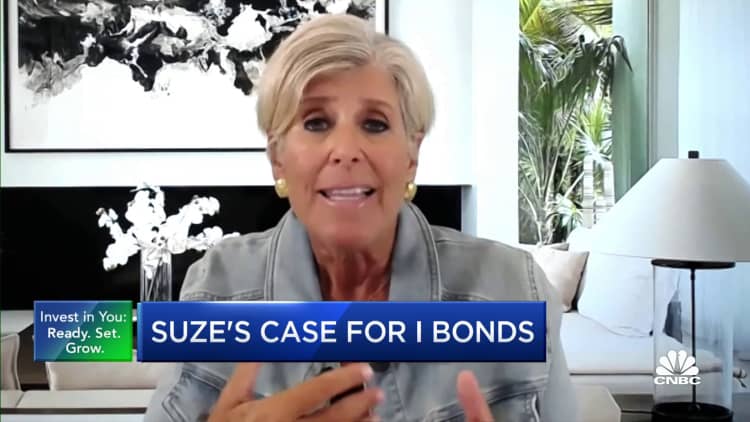An unexpected bill is never convenient.
But there are even more reasons now that an unforeseen event — such as a car repair or medical expense — could put Americans on unstable financial footing.
Blame record high inflation, which has soared to the highest levels in 40 years and pushed up prices for everything, including grocery store staples like butter, lettuce and dairy products.
Heading into 2023, recession risks also loom. The question is whether a downturn would be mild or prolonged, while leading tech employers like Amazon and Google have already started slashing jobs.
More from Personal Finance:
Congress may make it easier to save for emergencies
Inflation boosts U.S. household spending by $433 a month
How to save on groceries amid food price inflation
Meanwhile, the federal government has reached the debt ceiling. It's now up to lawmakers to find a solution so the U.S. government can continue to pay its bills.
"We're having a financial pandemic now, so to speak," personal finance expert Suze Orman told CNBC.com.
"It's a ... more dangerous scenario now than it was during the pandemic," Orman said of the current financial risks Americans face.
Many Americans were able to set aside more money than usual during the Covid-19 pandemic, as government aid meant additional unemployment benefits for jobless Americans for longer, while millions of individuals and families received stimulus checks.

Those federal funds are now dwindling, Orman said, as bills — including rents that have, in some cases, tripled and interest rates on mortgages that have climbed higher than they were before the pandemic — start to come due.
The environment may be the wake-up call many Americans need, she said.
"You have to have an emergency savings account, whether you're in recession or not in a recession," Orman said.
Americans living paycheck to paycheck
There's never been a better time to have emergency cash set aside.
Yet putting away a meaningful sum of money continues to be a challenge for many Americans.
A new survey finds 74% of Americans are now living paycheck to paycheck, according to SecureSave, a financial technology company that aims to help workers put aside emergency savings through their employers.
As inflation has soared, more than half of respondents — 54% — have decreased their savings in the past year, SecureSave's November online survey of more than 1,000 U.S. adults found.
About 67% of workers cannot afford to pay for an emergency $400 expense.
Among the things that Americans regret most about their personal finances is the failure to save for emergencies.Mark Hamricksenior economic analyst at Bankrate.com
Orman co-founded SecureSave during the pandemic after having told people for 40 years they need to have a savings account, she said.
"Our goal was very simple: Let's see if we can change the savings rate in America for those who have never saved a penny before," Orman said.
Many people often fall short of that goal. A new survey from Bankrate.com finds that most adults — 57% — are unable to afford an emergency $1,000 expense.
"People just can't do this on their own," Orman said. "The key is not to see it in your paycheck."
Through SecureSave, workers can have savings — such as $25 — automatically taken from their paycheck, and may then also receive a $3 or $5 match from their employers.
At the end of a year, people are often surprised by the sums they save, whether it be $600 or $1,000, Orman said.
"They love it," she noted. "And a lot of times they will raise their paycheck contribution.
"Once you start seeing how easy it is to save, the more you like to save," Orman said.
By building up the cash you have on hand, you may be able to avoid turning to credit cards as interest rates rise.
To that point, 25% of consumers surveyed by Bankrate.com said they would charge an unexpected expense of $1,000 or more and pay it off over time.
That strategy would be even more expensive now, with new credit card offers for even the best qualified individuals at interest rates of almost 20%, noted Mark Hamrick, senior economic analyst at Bankrate.com.
How savings can help other financial goals
Setting up emergency savings with an employer is just the first hurdle towards financial wellness, according to Orman.
The next goal is to save eight to 12 months' expenses in a separate savings account, Orman said.
Even workers who are strapped for cash should be contributing enough to their retirement accounts up to an employer match, if there is one.
"You cannot pass up free money," Orman said.
As workers reduce their financial stress, that may also help employers. Almost 30% of workers say they spend one to two hours a day worrying about money, according to SecureSave.
It can also help to prevent regrets later on, according to Bankrate.com's Hamrick.
"We've historically found that among the things that Americans regret most about their personal finances is the failure to save for emergencies," Hamrick said. "The other is the failure to save for retirement."


